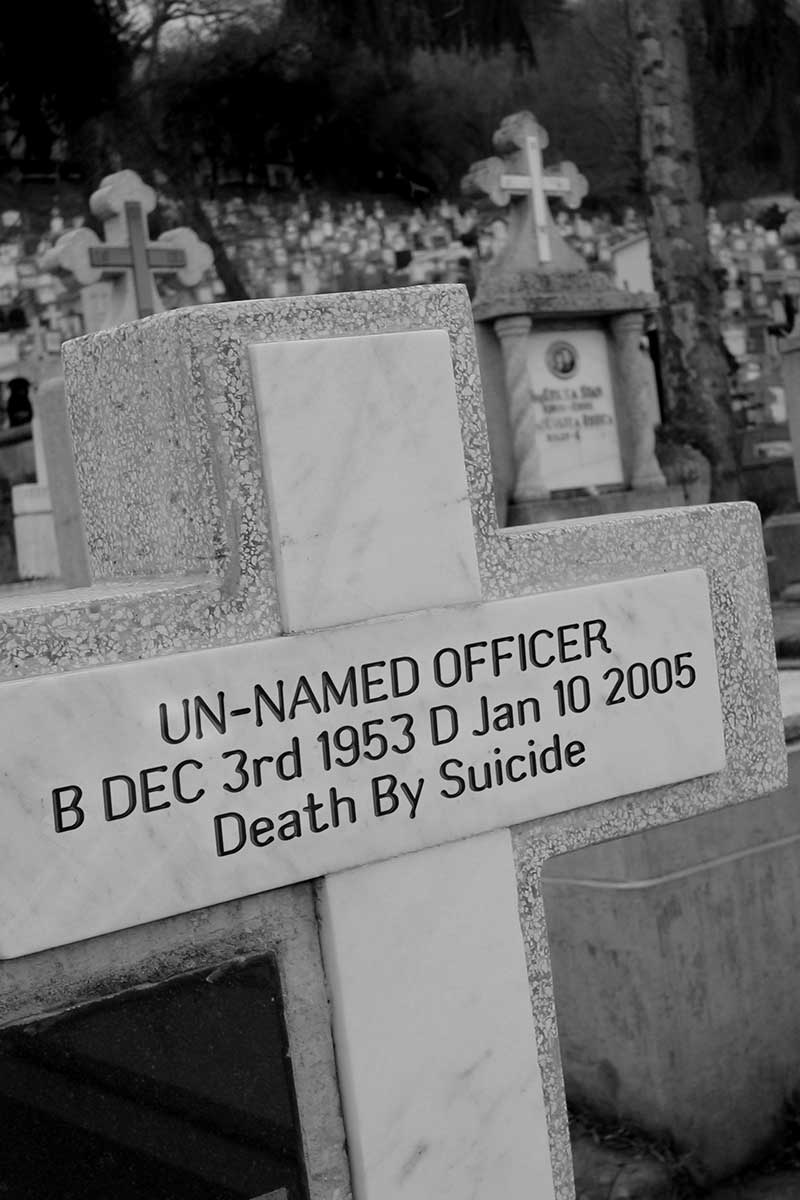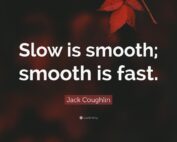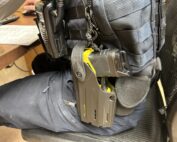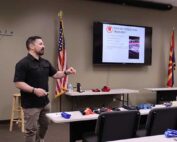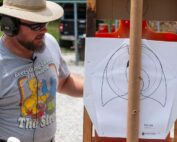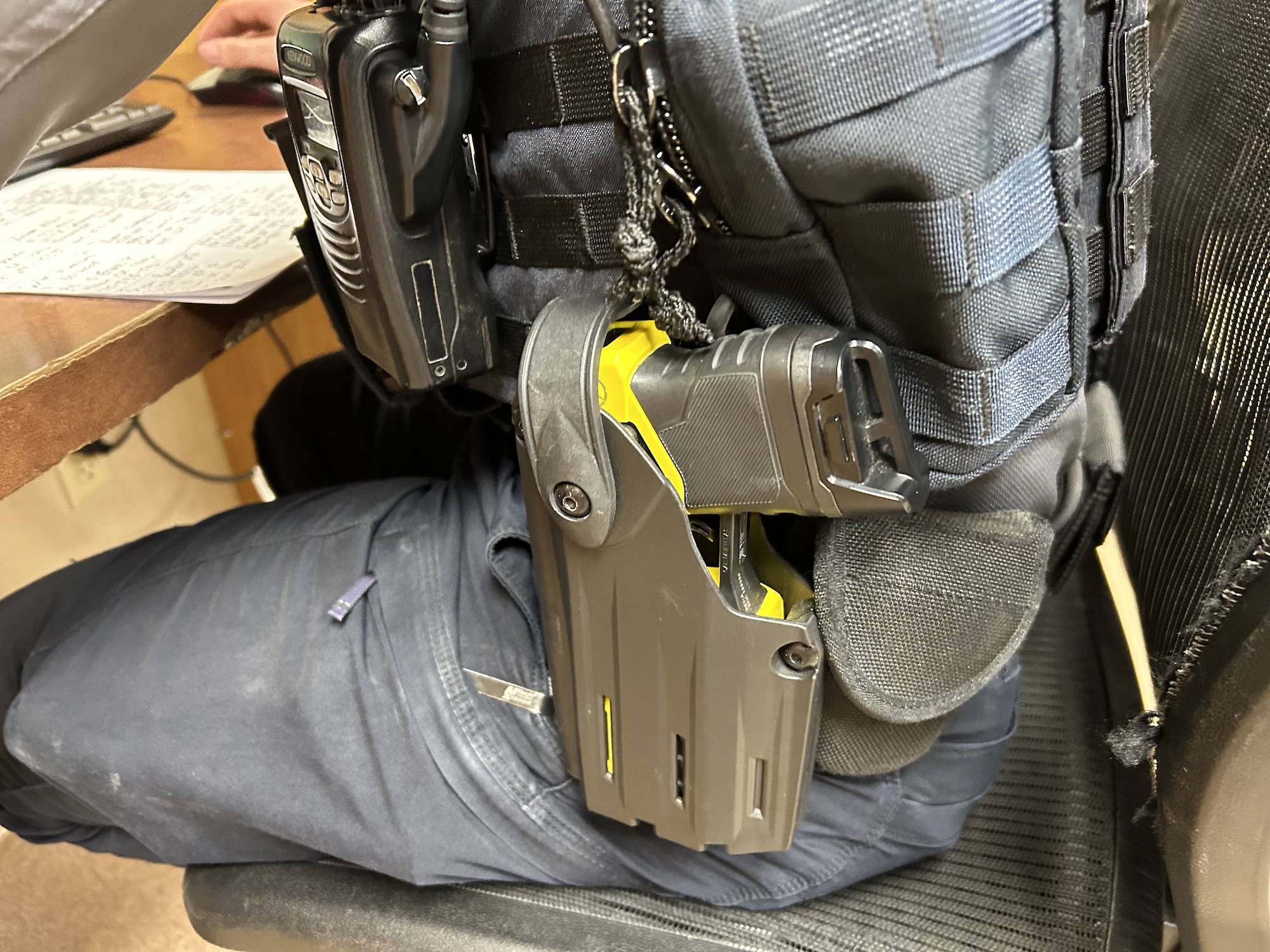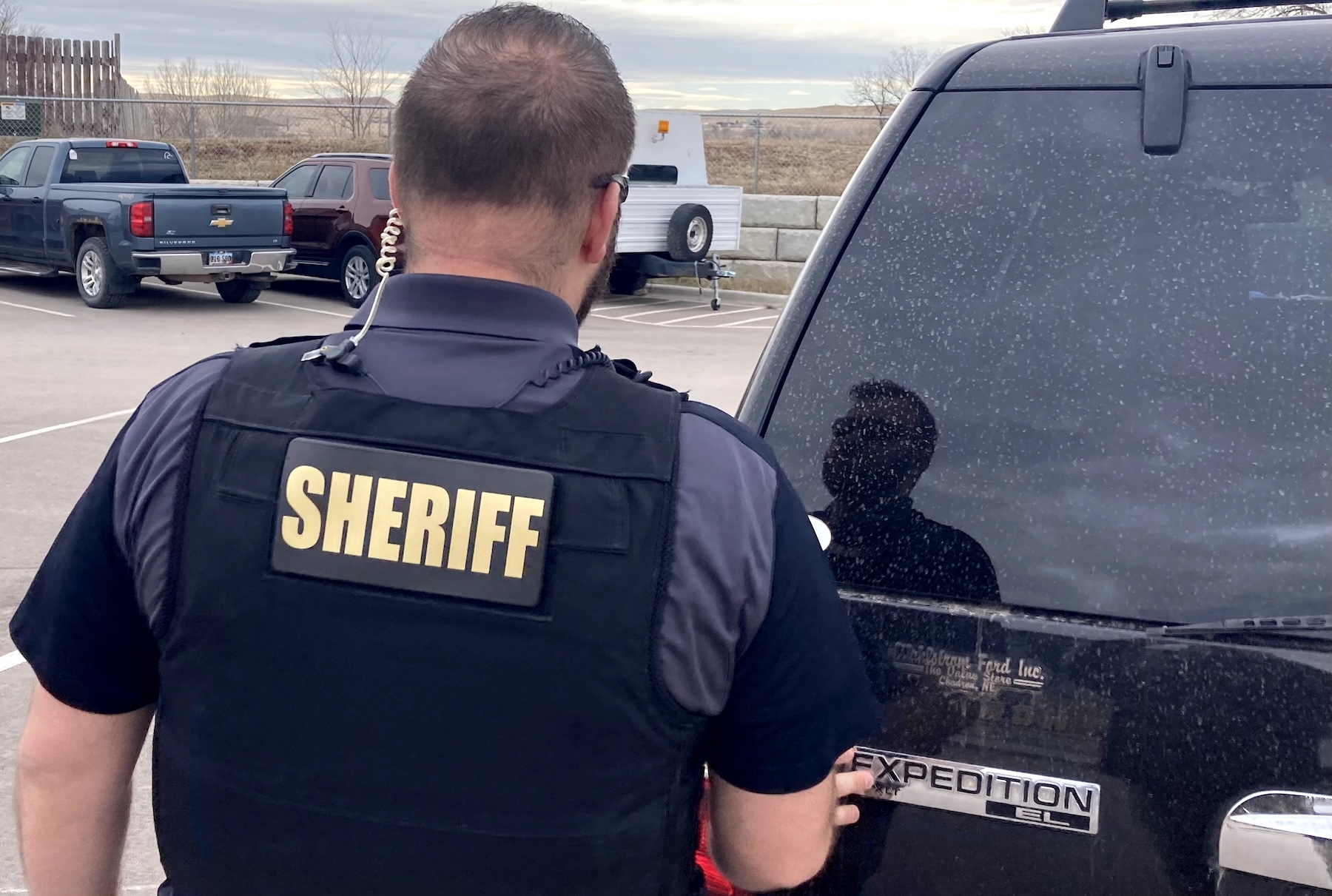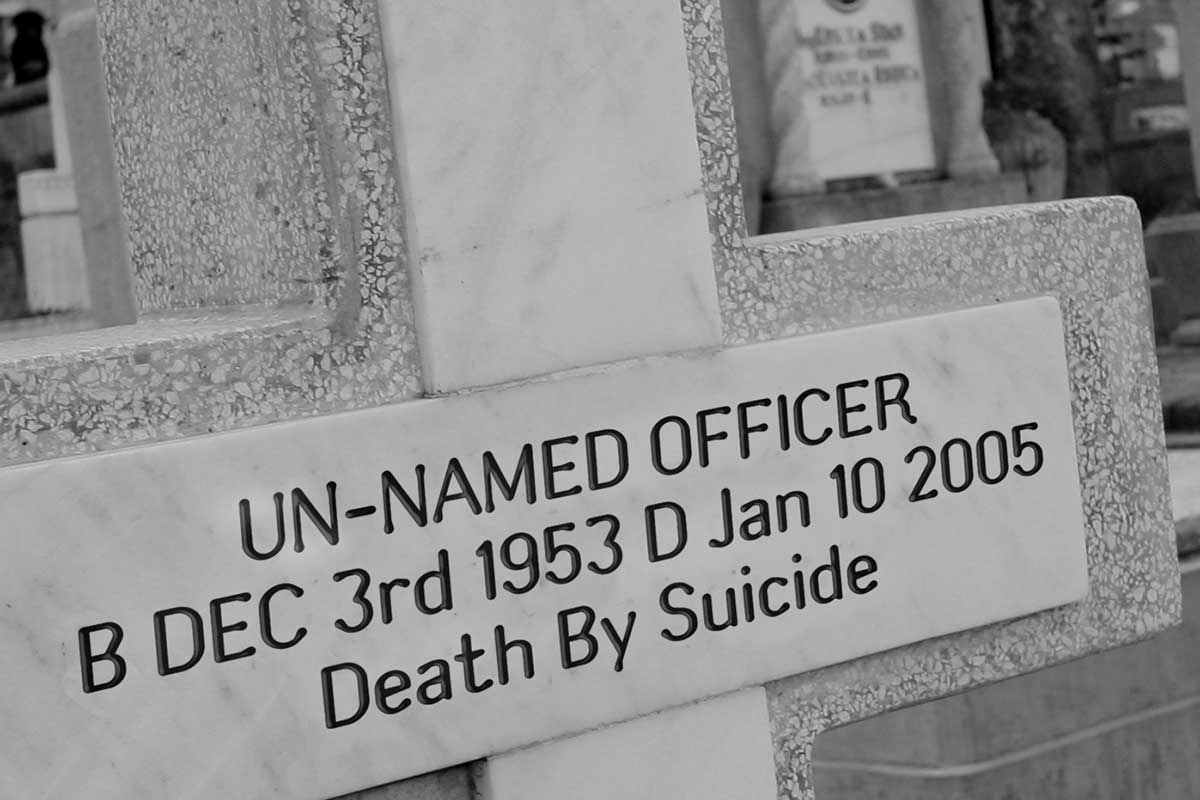
ACJF07_get_a_life_GRAVE-800
As cops, we deal with a variety of very scary people in our jobs. Although most of these individuals cross our paths during the course of our duties, sometimes the most frightening individuals we have to deal with are sitting right beside us in the front seat of the patrol car.
You know the type — he’s the guy everyone calls “Robo-Cop” and if you’re looking for a collection of police stuff, he’s got it all: cop tie tack, cop pen, cop watch, all the way down to the “Bad Boys” ring tone on his cell phone. When the shift is over, his personal vehicle is a used white Crown Vic with a couple of antennas on the trunk and a bumper sticker that reads, “My other car has a certified speedometer.”
These are the people who eat, sleep, drink and do just about every-thing “police.” What they don’t realize is that as important as it is to be committed to your work, without a distraction far and away from the department, cops could find themselves committed not just to, but because of their work.
POLICE MINDSET
I don’t dispute the imperative to have a police mindset when working. It’s the zone we put ourselves into before the start of our shift that has saved countless lives, including my own. What I am addressing here is in many instances, the constant police or “cop” attitude can be unhealthy both personally as well as professionally.
In our personal lives we have it bad enough. Show me an officer who has the same circle of friends after being on the job for five years as he did before wearing the badge and I’ll show you the exception that proves the rule. The old pals seem to go by the way-side as we surround ourselves with only those who understand “what it’s like.” Our job accounts for the highest job-related heart attack rate and the highest divorce rate. The latest estimate is about 60 percent.
According to the National Association of Chiefs of Police, twice as many police officers commit suicide than are killed in the line of duty every year. That’s about 300 deaths annually.
While working a shift, the job puts us in a constant state of alertness.
Our training dictates that while on the job, we need to maintain this state for our survival. Why then, at the end of the shift, do some choose to continue to surround themselves with the things that help maintain that stress level? The constant police attitude, like many things, is good in moderation — just don’t take it too far.
I had a training officer who, upon returning home after his shift, was adamant about drawing his weapon and clearing his own house, room by room. “It keeps me sharp,” he’d say. This is the same guy who could not understand why, after nineteen years of marriage, his wife left him for the insurance man. She got the house but he managed to keep his video taped collection of Cops episodes. On her way out, she made the comment to him about seeking “a little less adventure.”
I knew another guy who I thought seemed normal enough until he told me that on a first date, he brings the girl back to his house to watch the movie Heat. If she is less than thrilled, he never calls her again. This is not normal behavior, but we see it in new officers as well as the veterans. In most departments, this is the guy voted most likely to take off all his clothes and climb a tower with a high-power rifle.
IT’LL HELP YOU SLEEP
Early in my career, I worked a night turn with a well-seasoned lieutenant. Even though the shift was boring and quite uneventful, at 7 o’clock in the morning he said, “Come on, let’s go to the club and get a beer.” I must have looked surprised, but before I could respond, he continued, “A beer will help you sleep. I need a beer to help me sleep.”
“At 7 o’clock in the morning he said, ‘Come on, let’s go to the club and get a beer.’ I must have looked surprised, but before I could respond, he continued, ‘A beer will help you sleep. I need a beer to help me sleep.’”
That was my wake-up call and at that moment I swore I will never need a beer to help me sleep. There are good dis-tractions and there are bad distractions. This is a good example of a bad distraction. A study of 41,000 police officers in 2001 showed an alcoholism rate of nearly 25 percent compared to a rate of 7.5 percent in the general population.
DIVERSIONS
To avoid falling prey to bad distractions such as drinking heavily or collecting “everything cop,” the solution is simple: Have an outside interest. We all have different ideas about what is a good distraction, but it doesn’t have to be an expensive or all-time consuming hobby, just something to divert the day’s stresses.
Picking up the video game joystick and shooting zombies doesn’t really count.
It’s actually become more common-place to find cops whose distractions and hobbies pertain specifically to the job. For example, in order to keep up with the ever-changing innovations in technology, many are pursuing a higher education while sharpening their computer skills. I knew one cop that took the downtime opportunities, while working a steady third shift, to obtain his electrician’s certification. Before he retired, he was able to do enough electrical side work to put his daughter through college. Many skills brought to the job can be beneficial to not only furthering your career, but to preparing you for life after law enforcement.
I have a friend who was able to attain his degree in business and economics by taking Saturday and evening classes. He now sidelines as an investment counselor and does pretty well for himself. Obviously, the possibilities for a diversion beyond the job are endless.
It’s also important to keep in mind that not all side jobs and hobbies are readily acceptable to your peers. One cop took a part-time job over the holidays working in the picture frame shop of a local craft store. Although he described the experience of working with his hands as relaxing and even therapeutic, it was probably wise he didn’t share the fact his side job was matching the right pastel color matting to pictures of pretty flowers and fluffy little kitty cats.
It’s important to note not all outside hobbies are practical or even permissible under law or department policy. Department policies may dictate what an officer may or may not do when off-duty. In addition to department policies, local as well as state laws have been enacted further restricting off-duty activities. Some of these laws include prohibiting sworn officers to own or work in establishments that sell or serve liquor while others forbid active duty police to have certification or function as private investigators.
STARING YOU IN THE FACE
Many off the job interests can be complicated, time consuming and expensive, while others can be very simple with the best hobbies often staring you right in the face. A good friend’s favorite pastime is his kids. Whether it’s coaching his son’s Little League or chaperoning his daughter’s school band trip, his dedication not only keeps his mind off of the stressors of work but probably helps keep him out of family court as well. Late in his career, he decided to become a School Resource Officer. This enabled him to not only spend more time with his kids, but also gain a better under-standing of the issues that face his and other children every day.
“It doesn’t have to be an expensive or all-time consuming hobby … Picking up the video game joystick and shooting zombies doesn’t really count.”
Another excellent diversion is becoming involved in the local church of your faith. A very dear friend and fellow officer lost two children in two separate traffic accidents. He explains it could have been very easy to climb into a bottle or spend a lot of time and energy blaming everyone and every-thing, but instead he chose to turn to his faith. There he found support from others in his church community where he volunteers his time to help those who have faced similar circumstances.
His example is a great reminder that we are never truly alone until we turn our backs and close the door on those around us.
Many clichés exemplify the point that I have tried to illustrate: “Too much of a good thing,” “Man can not live by bread alone,” or my favorite: “Geez, that guy’s nuts!” No matter how it’s explained, the point remains that in a job where we witness the absolute worst things that can be seen, we must have a positive, healthy distraction that takes us away from that which all too often surrounds and penetrates us.
BIO: Daniel J. Burns is a police sergeant for the City of Duquesne, just outside of Pittsburgh. During his 12 years as a cop, he’s served as an instructor for the FBI, U.S. Attorney’s Office and the State of Pennsylvania. Dan is a former high school English teacher. His background in journalism enables him to write reports that can be read without a translator.


